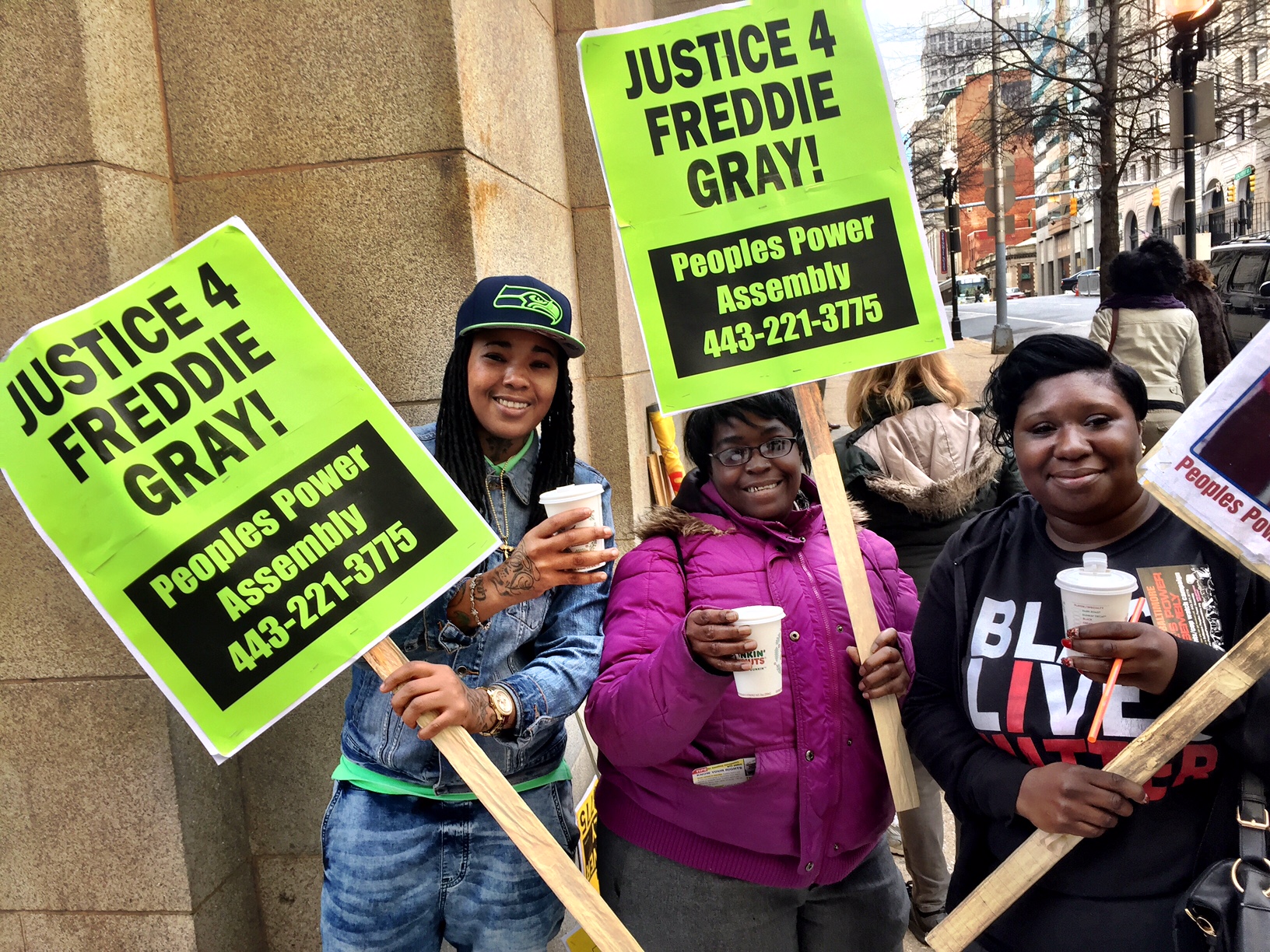
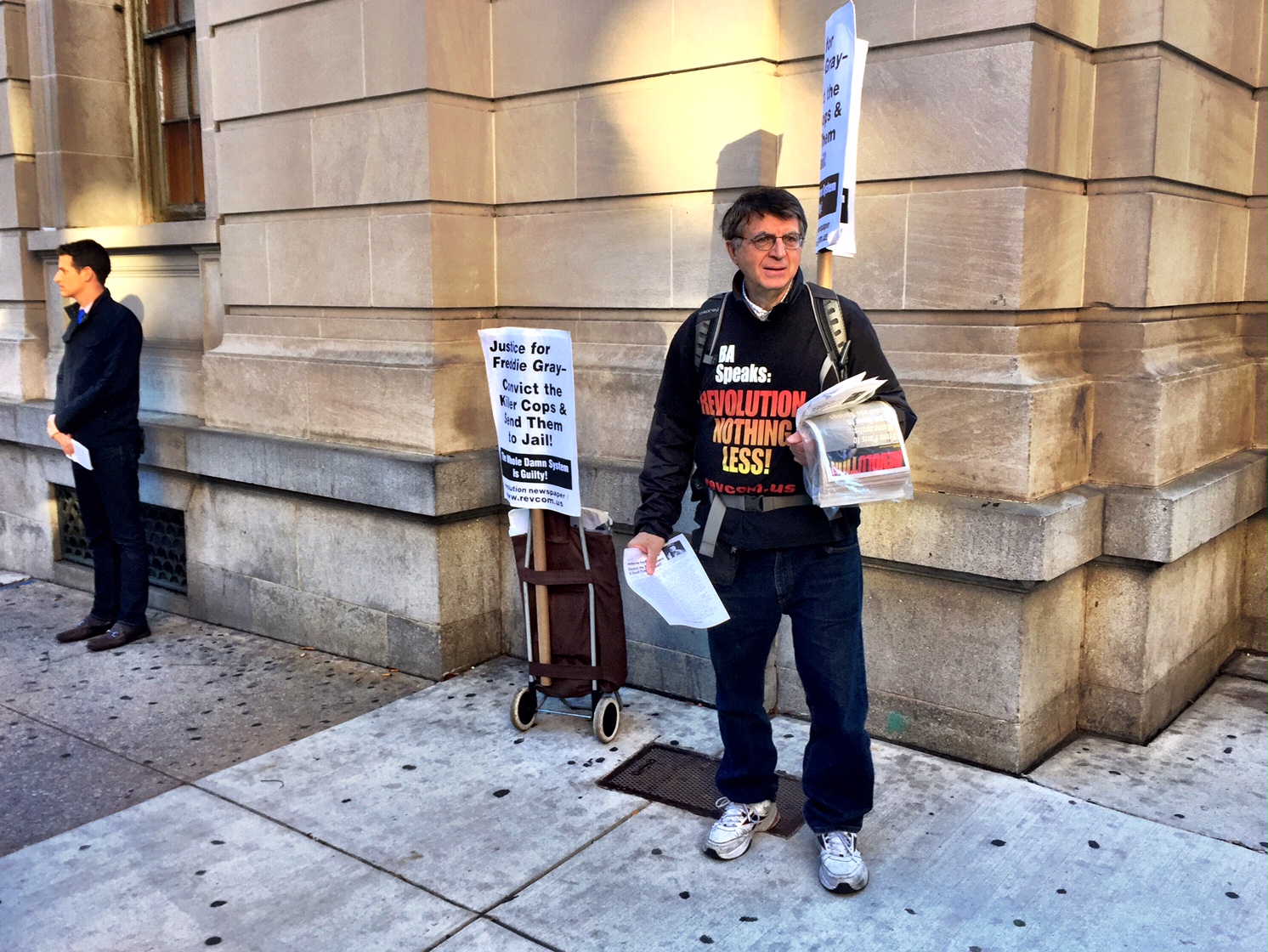
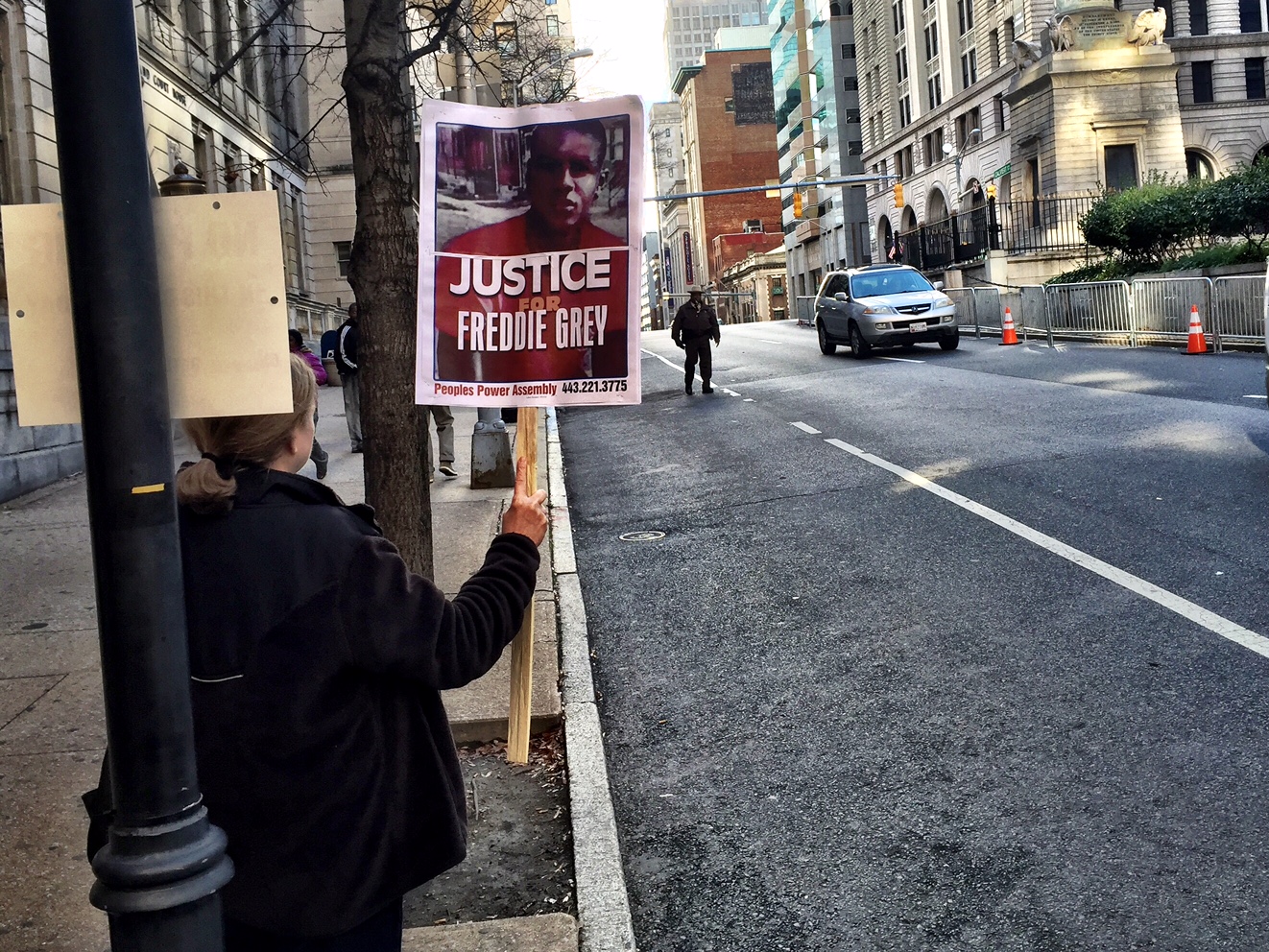
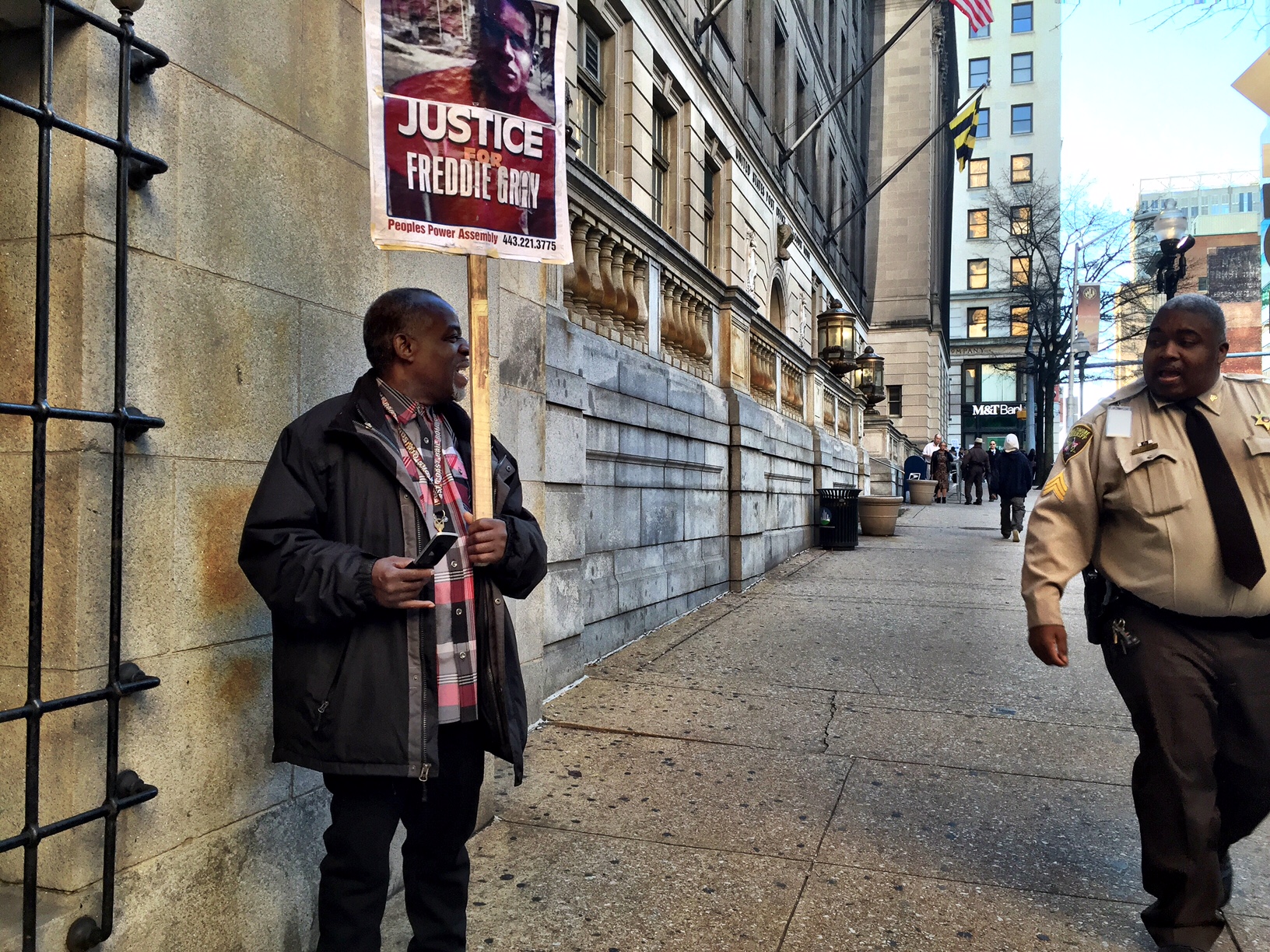
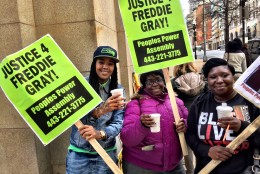
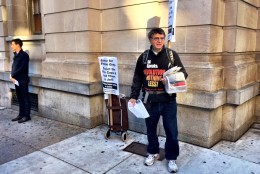
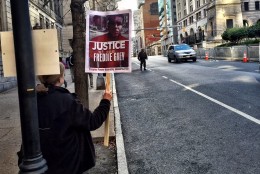
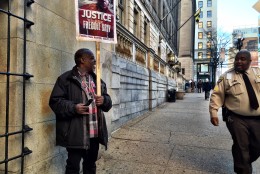
BALTIMORE — As jurors deliberate in the manslaughter trial of Baltimore police officer William Porter, a small group of protesters outside the courthouse wait with signs reading “Justice for Freddie Gray.”
Jurors resumed deliberations at 8:30 a.m.
Protester Arthur Johnson Jr. was in place, as he says he has been every day since the trial began.
“I’m 72; I’ve lived in Baltimore all my life,” says Johnson.
He hopes that Porter, and the other five officers charged in connection with Gray’s death, will be convicted and serve jail time.
“They can do it on weekends; I don’t care, but they need to sit down, and be, in a [solitary] place, and think about what they’ve done,” Johnson says.
Protester Jonathan Brown, who is white, handed out flyers.
“I’m here, like anyone with a functioning heart and conscience, that says wanton murder and brutality, particularly of black and Latino people in this country, has to stop,” Brown says.
One young protester, who declined to give her name, said that unlike Gray, who died from injuries suffered while in police custody, Porter is able to come to court every day.
“I saw him drinking coffee, while Freddie is dead, in a graveyard,” she said.
With the group of protesters small, at times numbering two dozen, Baltimore sheriff’s deputies have interacted with them positively, while making sure sidewalks are clear in front of the courthouse for those coming and going.
At one point on the chilly morning, a deputy gave three protesters a $5 bill. They thanked him and returned with three small cups of handwarming coffee from the nearby Dunkin’ Donuts.
“At least one of them is nice,” said one of the women, as she resumed her vigil, waiting for a verdict.
Johnson, who remembers the 1968 Baltimore riot after the assassination of Martin Luther King Jr., hopes reaction will be peaceful, regardless of the verdict.
“I don’t say burn — come on; this is where we live. There are other ways besides burning,” Johnson says.





